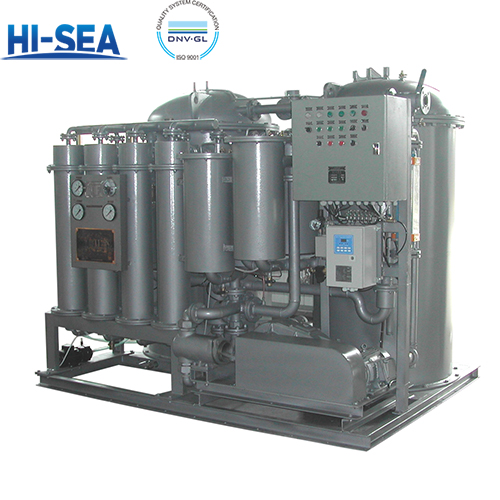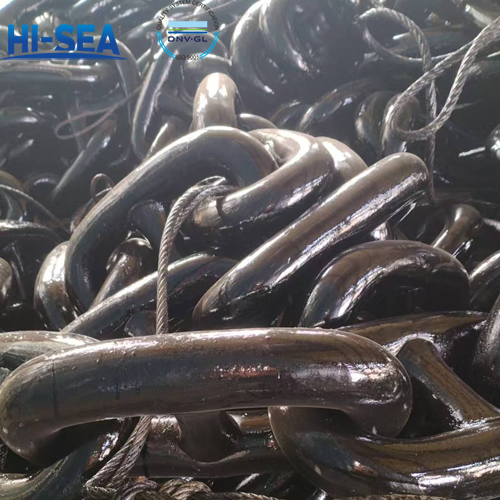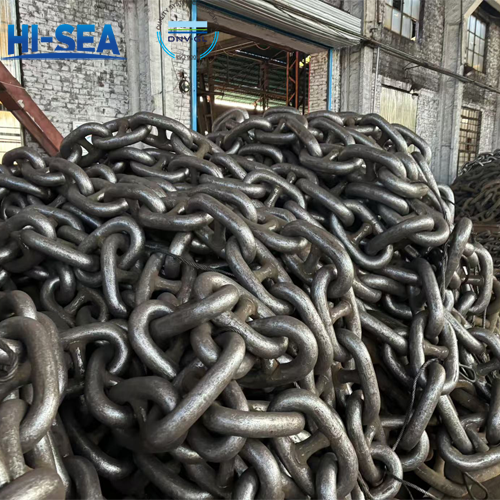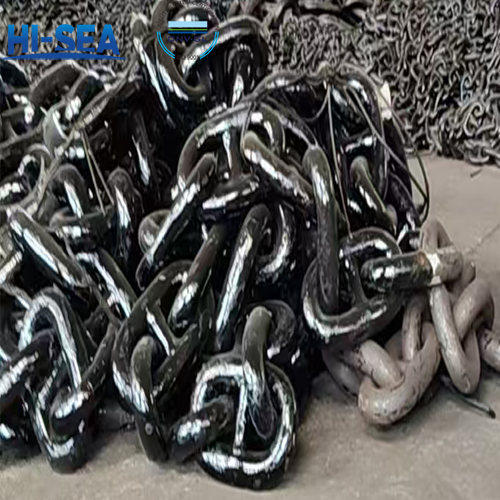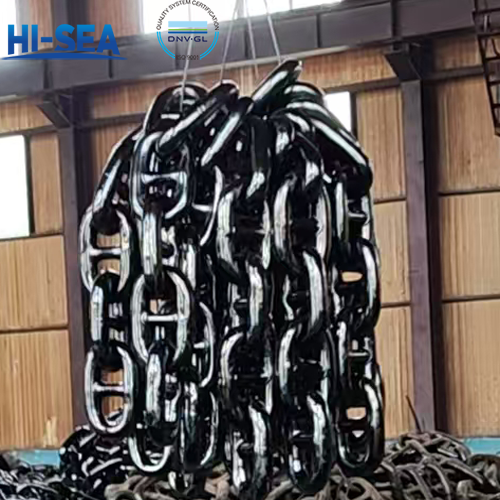
Coalescing Elements in Oily Water Separators: Principles, Functions and Importance
In today's era that focuses on marine environmental protection and compliant operation of ships, marine oily water separators have become key equipment to ensure the marine ecology and the normal operation of ships. Among them, the coalescing elements are the core components for achieving efficient oil-water separation.
As a professional marine equipment supplier, we have rich experience in the supply of Marine oily water separators, aiming to choose the most suitable equipment for you. If you have this need, please leave a message or contact us via email <hs10@cqhisea.com>!
Overview
The Function of Marine Oily Water Separators
The main mission of marine oily water separators is to treat the oily sewage generated in the engine room of ships. It needs to separate the oil and water in this sewage to ensure that the discharged sewage complies with strict and demanding environmental protection regulations.
The Working Principles of Coalescing Elements
Physical Adsorption
The materials adopted by coalescing elements usually have excellent lipophilicity. When oily sewage flows through, tiny oil droplets will be quickly captured by this lipophilic material through physical adsorption, just like a magnet attracting iron filings.
Collision Coalescence
The complex internal structure causes changes in the speed and direction of the water flow. This change greatly increases the probability of mutual collisions between oil droplets, enabling them to coalesce together and form larger oil droplets. This process is just like small water droplets constantly colliding in the clouds and converging into large raindrops.
Wetting Effect
The surface characteristics of coalescing elements play a key role. Oil can wet and gather on its surface more easily, while water is relatively difficult to attach, thereby effectively promoting the separation of oil and water.
Capillary Action
In some coalescing elements, there are capillary channels and pores. They can attract oil droplets to enter and provide an ideal space for the aggregation and coalescence of oil droplets.
For example, in common fiber coalescing elements, the narrow gaps between fibers form complex flow channels. Oil droplets constantly contact, collide and adsorb with the fiber surface in them, gradually growing into larger oil droplets, and finally achieving effective oil-water separation.
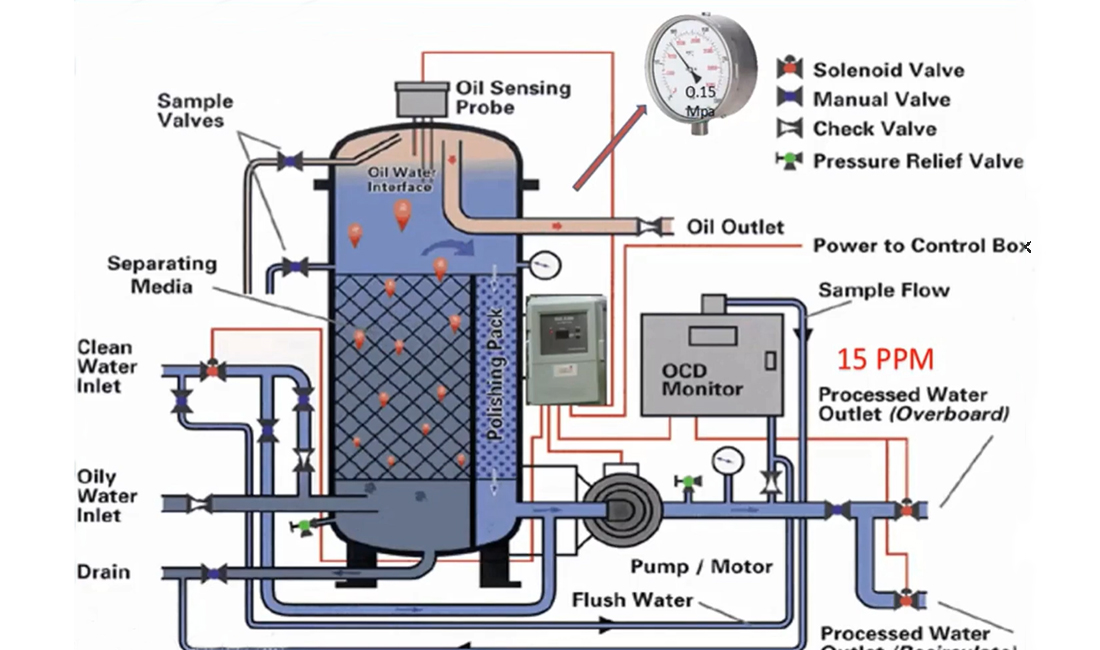
The Importance of Coalescing Elements
The important position of coalescing elements in marine oily water separators is irreplaceable. They significantly improve the efficiency and effect of oil-water separation, enabling the treated sewage to smoothly meet environmental protection discharge standards and greatly reducing the pollution threat of ships to the marine environment.
For the operation of ships, the stable operation and efficient separation capacity of marine oily water separators are the key to ensuring compliance. If the oily water separator malfunctions or fails to work effectively, ships may face severe penalties and at the same time cause incalculable damage to the marine ecology.
Conclusion
In conclusion, as a key component of marine oily water separators, although the principle of coalescing elements is complex and delicate, it has an unshakable significance for protecting the marine environment and ensuring the legal and sustainable operation of ships. We should attach great importance to and continuously improve this technology, and go all out for the cleanliness and sustainable development of the ocean.
By browsing this article, we believe that you must have a certain understanding of oily water separator. If you have procurement needs or want to learn more about the details or parameters in depth, welcome to visit the homepage of our marine oily water separator, or contact us directly!

